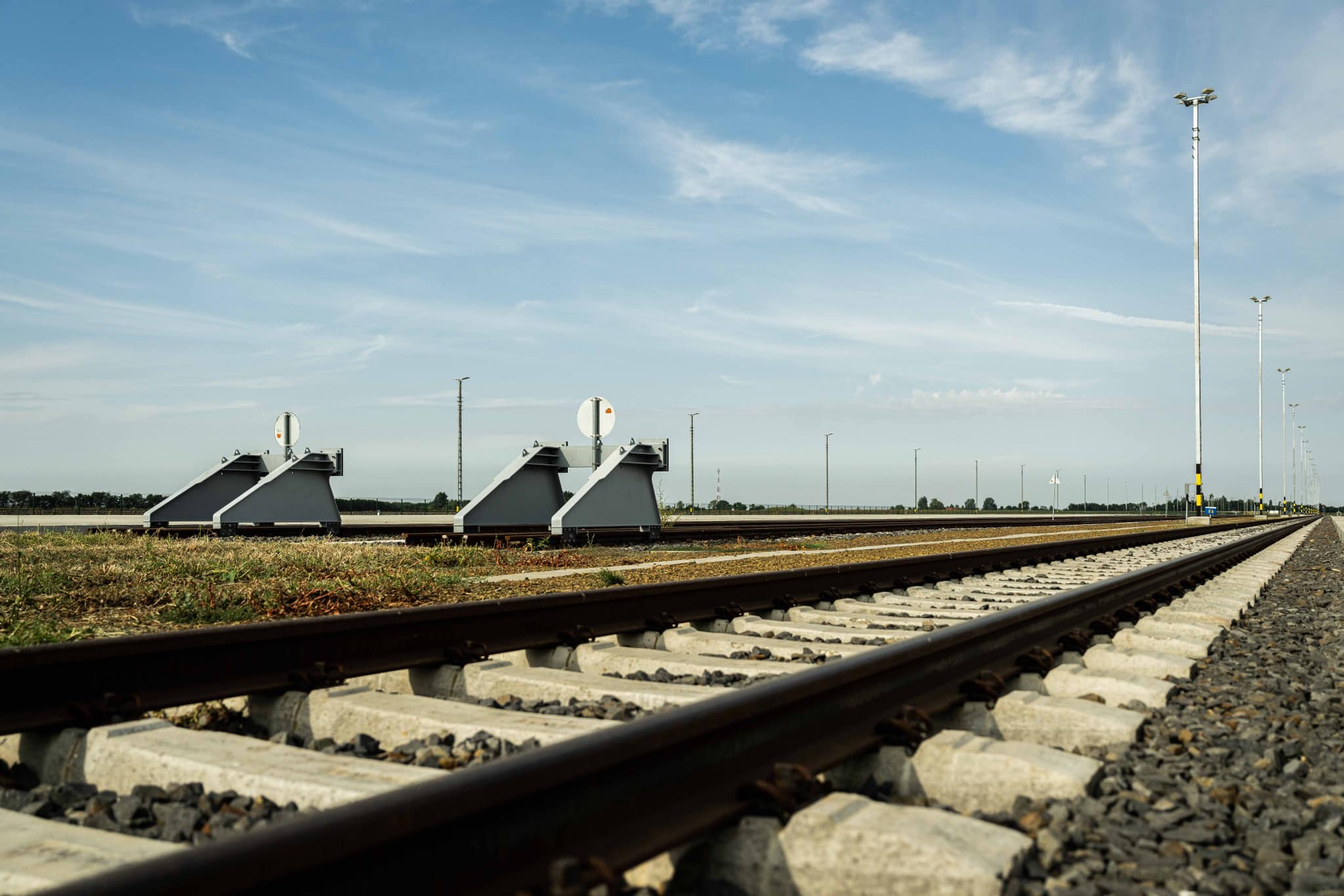The future home of the BMW factory is also being renovated.Continue reading
The first phase of the railway infrastructure development works related to the northwestern Economic Belt in Debrecen (eastern Hungary) has been completed. The second phase of the project can now start, creating one of the largest industrial intermodal terminals in Eastern Europe, Minister of Foreign Affairs and Trade Péter Szijjártó announced on the construction site.
The minister said at a press conference held on the occasion of the inauguration that Hungary has undoubtedly become one of the leaders of the ongoing transformation of the automotive industry, with the city in the eastern region becoming an important global center for the sector, where investments worth around HUF 1,000 billion (EUR 2.6 billion) are currently being made. German automotive giant BMW is focusing its future electromobility strategy on the city, while Europe’s largest electric battery factory is also being built here by China’s CATL.
Two of the three biggest investments in the history of the Hungarian economy are currently taking place here, just a few kilometers apart,”
he stressed. He pointed out that these factories are triggering huge transport infrastructure developments, with major road and rail construction.
He mentioned that the government has also decided on major railway developments in the Debrecen area, with the Füzesabony (eastern part of Heves County) and Balmazújváros (in Hajdú-Bihar county) lines being renewed in two phases with HUF 130 billion (EUR 342 million), stations being modernized, new ones being built, and the tracks being electrified. “This will create a direct link between the northwest Economic Belt in Debrecen and the main rail transport lines,” he added.
Péter Szijjártó announced that
the first phase, worth 65 billion forints (EUR 171 million), has been completed and the second phase can now start.
“As a result, Debrecen will have the largest industrial intermodal terminal in eastern Hungary and one of the largest in Eastern Europe,” he said. He highlighted that this logistics center would enable the BMW plant to be fully serviced from both rail and motorway.
“The government is continuing to fulfill the commitments it has made to BMW, and we are also continuing to make developments that will improve the living conditions of the people living here,” he said. “Not only are we improving freight transport, not only are we enabling BMW to transport 70 percent of the cars it produces by rail, but we are also providing faster access between Debrecen and the surrounding villages, making public transport more cultural and attractive, and protecting the environment, as the railway line will now have an electric overhead line, so that diesel power will be replaced by electric locomotives,” Szijjártó noted.
The country will greatly benefit from the investments in Debrecen, but we want to see a tangible improvement in the lives of the people of Debrecen.
That is why we are continuing with road improvements, modernizing the city’s water network, and making further community investments,” he added.

The completed first phase. Photo: Facebook/Szijjártó Péter
The minister argued that since 2014, with the exception of the slowdown due to the COVID epidemic, Hungary has managed to break the investment record every year. While last year the record was broken with €6.5 billion, this year it will double, helping maintain the growth trajectory despite difficult conditions and external pressures, he concluded.
Via MTI, Featured image via Facebook/BMW Group Gyár Debrecen